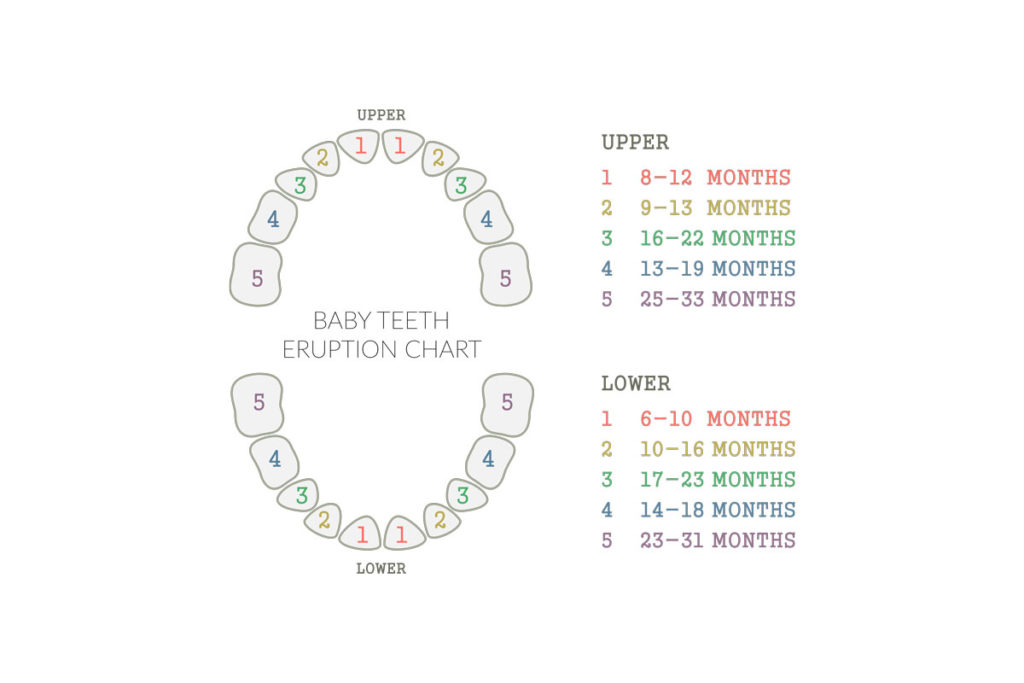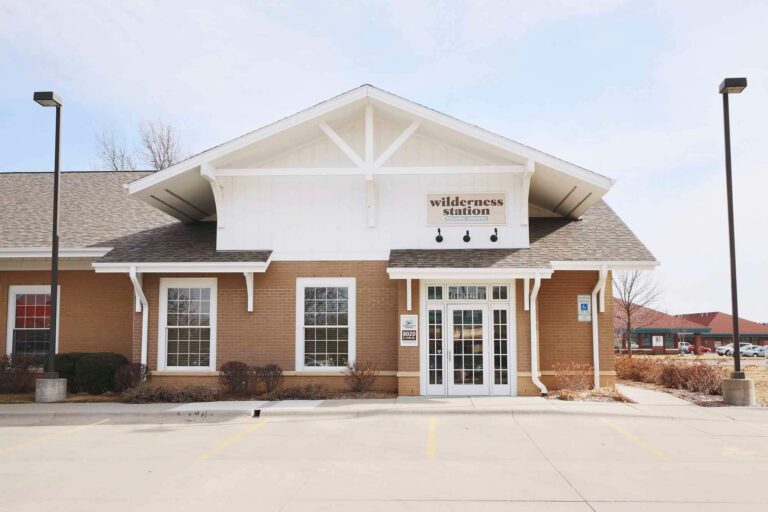Baby Teeth
Baby teeth are essential for your child's long-term oral health. They help them with eating and speaking, and keeping the jaw aligned by providing space for permanent teeth.
When Do Babies Start Teething?
Babies are born with all 20 primary teeth below their gum line, with ten teeth on the bottom and ten on the top. Usually, babies will get their first tooth anywhere between 6 to 12 months of age. However, there is no specific age when teething starts. The first teeth that typically erupt are the front two teeth on the top and bottom. When your baby’s first tooth comes in, they will likely have sore and tender gums, making them fussier than usual. Most children will have all their primary teeth by age 3.
If your child has their first tooth or it’s nearing their first birthday, it’s time for their first dental visit. Our experienced team of pediatric dental professionals would be happy to see your child for their first visit! If you’re worried about your child’s baby teeth, please contact our pediatric dentist office in Lincoln, NE.

-
What are common teething symptoms?
It’s important to remember that every child is unique and may respond differently to teething. However, you may notice some common signs if your little one is either already teething or is likely to start soon. These symptoms include:
- Swollen gums
- Increased fussiness
- Lots of drool
- Less interest in solid foods
- Biting and chewing
- Bringing hands to mouth
- Rubbing cheeks
- Pulling ears
- Disrupted sleep
Symptoms such as cough, congestion, diarrhea, vomiting, and fever higher than 101 F are not typically associated with teething. If your child experiences any of these symptoms, it’s best to consult their pediatrician.
-
What are dentist-recommend baby teething remedies?
When babies start teething, it can be challenging for both the infant and the parents. Here are some dentist-recommended baby teething remedies:
- Chilled Teething Toys: Offering a cold, not frozen, teething toy can provide relief.
- Gentle Gum Massage: Wash your hands and gently rub your baby’s gums with a clean finger can relieve their pressure.
- Teething Rings: Silicone teething rings are a popular choice. They can be chilled for extra relief, but avoid those filled with liquid or gel that might leak, as this could damage your child’s gums.
- Avoid Sugary Teething Biscuits: These can contribute to tooth decay.
- Avoid Numbing Gels or Tablets: The American Academy of Pediatrics and the FDA recommend against the use of benzocaine-containing gels or homeopathic teething tablets, as they can pose health risks to infants.
-
When should I start brushing my child's teeth?
As a parent, you may wonder when to start brushing your baby’s teeth. We recommend brushing their teeth as soon as their first tooth appears. Make sure to brush their teeth twice daily with a small amount of toothpaste, which should be approximately the size of a grain of rice. It is crucial to keep your baby’s teeth free of cavities because the bacteria that cause cavities in baby teeth can stay in their mouth and lead to cavities in permanent teeth.
Before your baby’s teeth come in, you can care for their mouth by wiping their gums after feeding and before bedtime. Also, avoid cleaning their pacifiers with your mouth.
Questions About Baby Teeth?
If you have any questions about baby teeth contact us today, request an appointment for your child, or explore the other pediatric dental services we offer using the links below.
